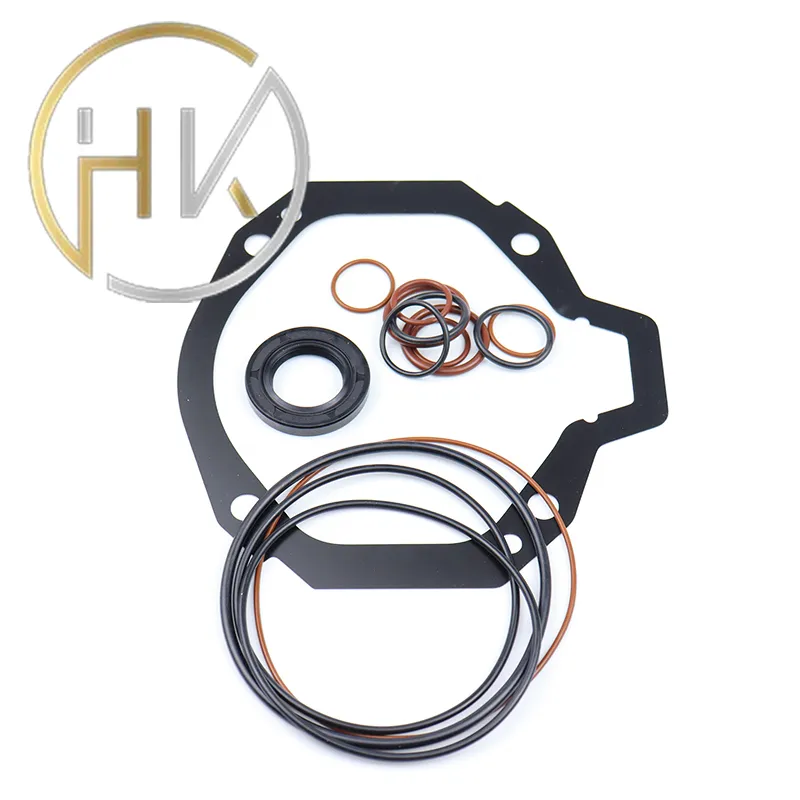Dec . 02, 2024 04:50 Back to list
Motor Oil Seal Solutions for Enhanced Performance and Reliability
Understanding Oil Seals for Motors Function, Types, and Importance
In the world of mechanical engineering, the efficiency and longevity of motors hinge significantly on the components that facilitate their operation. Among these components, oil seals play a crucial role. An oil seal, also known as a radial shaft seal, is designed to retain lubricant while excluding dirt, dust, and moisture. The effectiveness of these seals is paramount in ensuring that motors operate smoothly and reliably.
Function of Oil Seals
Oil seals serve several essential functions in motor applications
1. Lubrication Retention They prevent lubricants from leaking out of the motor, ensuring that the moving parts are well-lubricated. This helps to reduce friction, which can lead to overheating and excessive wear.
2. Contaminant Exclusion Oil seals protect the internal components of the motor from contaminants such as dirt, dust, and moisture. These contaminants can cause damage to the internal mechanisms, leading to decreased performance and potential motor failure.
3. Pressure Maintenance In some cases, oil seals help maintain pressure within the motor. This is particularly important in applications where a certain level of pressure is required for optimal operation.
Types of Oil Seals
There are various types of oil seals available, each designed for specific applications and environments
. Here are some common types1. Lip Seals These are the most commonly used oil seals. They have a flexible lip that makes contact with the shaft surface, creating a tight seal. Lip seals are available in different materials, including rubber and silicone, to suit various temperature and pressure conditions.
2. Mechanical Seals Often used in rotary applications, mechanical seals consist of a combination of stationary and rotating components. They are designed to withstand high temperatures and pressures, making them suitable for high-performance motors.
oil seal for motor

3. V-Seals These seals are designed to fit over the shaft and provide an additional layer of protection against contamination. They are particularly useful in applications where space is limited.
4. O-Rings While not exclusively oil seals, O-rings can be employed in motor applications where they serve a sealing purpose. They are circular and designed to fit into a groove, providing an effective barrier against leakage.
Importance of Quality Oil Seals
The quality of oil seals is crucial for the overall performance of a motor. High-quality seals are made from robust materials that can withstand extreme temperatures and pressures. They are also designed for longevity, reducing the frequency of maintenance and replacements.
When choosing oil seals for motors, it is important to consider factors such as
- Material Compatibility The material of the oil seal should be compatible with the lubricant being used, as well as the operational temperature and environment.
- Dimensions and Sizing A proper fit is essential for effective sealing. Incorrect sizing can lead to leaks, resulting in potential motor damage.
- Application Specificity Different applications may require specific seal designs. Selecting the right type of seal for the motor’s application is essential for optimal performance.
Maintenance and Replacement
Regular maintenance of oil seals is vital to ensure the longevity of motor operations. This includes periodic inspections for signs of wear, cracks, or deformation. If oil seals are found to be compromised, they should be replaced immediately to prevent further damage to the motor.
In conclusion, oil seals are a small but critical component in the functioning of motors. Their ability to retain lubrication and exclude contaminants directly impacts the performance and lifespan of a motor. When selecting and maintaining oil seals, it is essential to prioritize quality and compatibility to ensure optimal motor performance. By understanding the importance of these seals, engineers and technicians can make informed decisions that enhance the reliability and efficiency of motor operations.
-
TCN Oil Seal Metal Ring Reinforcement for Heavy Machinery
NewsJul.25,2025
-
Rotary Lip Seal Spring-Loaded Design for High-Speed Applications
NewsJul.25,2025
-
Hydraulic Cylinder Seals Polyurethane Material for High-Impact Jobs
NewsJul.25,2025
-
High Pressure Oil Seal Polyurethane Coating Wear Resistance
NewsJul.25,2025
-
Dust Proof Seal Double Lip Design for Construction Equipment
NewsJul.25,2025
-
Hub Seal Polyurethane Wear Resistance in Agricultural Vehicles
NewsJul.25,2025
-
The Trans-formative Journey of Wheel Hub Oil Seals
NewsJun.06,2025
Products categories
















